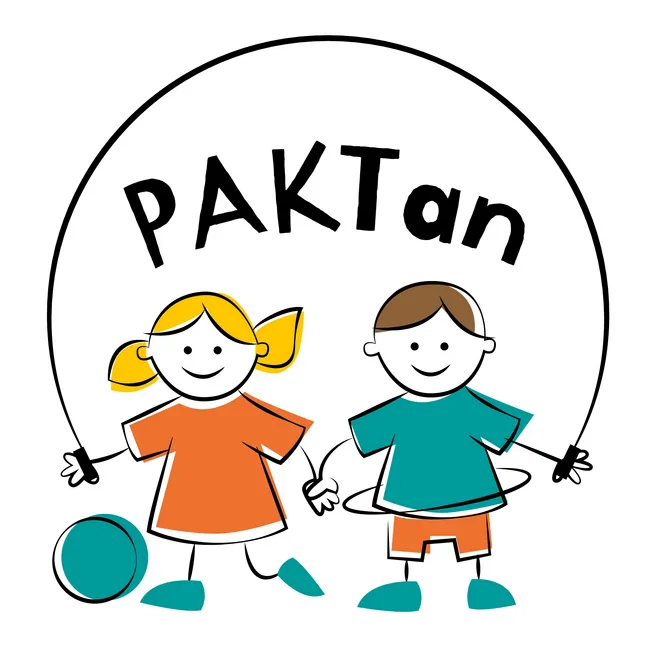In Germany, young people are the age group most affected by poverty. Approximately 21 percent of all children live in persistent or recurring disadvantaged circumstances – a result of their parents' income, educational attainment, and employment status. This situation has a lasting impact on their opportunities and developmental prospects, necessitating targeted support measures.
Targeted health promotion measures play a crucial role in reducing health inequalities among children. Programs such as Early Support initiatives and community-based approaches have shown initial success. Early childhood education in daycare centers (Kitas) is particularly impactful, as it fosters essential learning and developmental processes critical for later academic success and overall life outcomes.
The PAKTan project aims to enhance health equity and increase physical activity among children. While PAKTan I focused on establishing the fundamentals of health promotion, PAKTan II explores the successful implementation of the program in larger and more diverse contexts. The three-year project seeks to optimize the measures through comprehensive evaluation, develop sustainable training concepts, and bridge the gap between planning and practice. It is funded by Gesund.Leben.Bayern of the Bavarian State Ministry for Health, Care, and Prevention with approximately €50,000 for evaluation, and the GKV Alliance for Health in Bavaria with around €107,000 for project implementation.
Prof. Dr. Filip Mess, head of the Associate Professorship of Didactics in Sport and Health, highlights the importance of the follow-up project: "We are delighted that both project sponsors value our scientific work, recognize its societal relevance, and support it through this continuation project. Through the rollout and institutional integration, we can make a stronger contribution to reducing health inequalities among children in Bavaria."
Philipp Hartmannsgruber, a research associate at the Associate Professorship of Didactics in Sport and Health, explains: “The focus of PAKTan II is on enhancing autonomy in training and ensuring a seamless rollout as originally developed in PAKTan I—aiming to maximize the benefits for children and professionals.” Hartmannsgruber also analyzes the conditions under which the concept can be successfully implemented in other facilities, considering factors such as resources, social settings, and urban versus rural environments.
The program rollout involves 20 daycare centers and tests two approaches. "We compare a multiplier training method, where professionals independently integrate knowledge into their daycare, with direct on-site training, where teams receive personal guidance," Hartmannsgruber explains. The aim is to determine which training method is more sustainable and practical in the long term.
Insights from implementation science inform the project to systematically evaluate its effectiveness and sustainability. The project begins with a survey to assess educators' health literacy and expectations for PAKTan II. Regular short surveys will monitor the frequency and quality of implementation. After a year, a final evaluation will compare skill development, the long-term integration of measures, and the effectiveness of the two training approaches.
"The daycare activities cover a variety of motor skill development exercises, including strength, coordination, and endurance," explains Hartmannsgruber. Examples include games like "Crawling Day" to build strength or daily rituals that encourage children to start their day actively. Seasonal theme weeks, parent modules, and additional tasks tailored to individual daycare needs further enrich the program.
PAKTan II aims to create added value for different stakeholders. For children, the focus is on promoting motor skill development, especially following the noticeable decline during the pandemic. The widespread implementation of the project provides more children with access to targeted measures to strengthen their physical abilities, such as strength and coordination.
Educators also benefit from the program through flexible activities that can be easily adapted to the needs of individual children. "For children with deficits, such as in coordination, educators have immediate access to suitable measures to provide targeted support," Hartmannsgruber emphasizes.
In the long term, organizations such as the Workers' Welfare Association (AWO) in Bavaria gain from an evaluated, practical training concept that can be sustainably integrated into their facilities.
To the Homepage of the Associate Professorship of Didactics in Sport and Health
To the PAKTan Project Page
Contact:
Prof. Dr. Filip Mess
Associate Professorship of Didactics in Sport and Health
Georg-Brauchle-Ring 60/62
80992 Munich
Tel.: +49 89 289 24520
Email: filip.mess(at)tum.de
Philipp Hartmannsgruber
Associate Professorship of Didactics in Sport and Health
Georg-Brauchle-Ring 60/62
80992 Munich
Email: philipp.hartmannsgruber(at)tum.de
Text: Bastian Daneyko
Photos: Private


